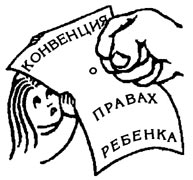Boris Altshuler,
Speech in the Grand Kremlin Palace at the Federation of Jewish Communities of Russia ceremony for “Man of the Year 5769” Award, 20 December 2009:
המאבד נפש אחת מאבד עולם מלא
המציל נפש אחת מציל עולם מלא
‘h’ameabed nefesh ahat meabed olam male.
‘h’amazil nefesh ahat mazil olam male.
“He who destroys a single life destroys an entire world,
and he who saves a single life saves an entire world.”
Mishnah, “Sanhedrin” (see notes below)
In ancient Israel this pronouncement was made by judges at the start of court proceedings on the cases of murder. It was addressed to the witnesses to emphasize the importance of the moment. The meaning of it is that all people are descended from one man, Adam, and, consequently, one who kills a person kills all humanity because thus he makes an attempt on the very principle of life.
There is great wisdom in the idea that the life of one person and the life of millions weigh the same on the scale of values. It also brings to mind Dostoyevsky’s famous maxim: “The well-being of the whole world is not worth one child’s tear.”
It is this principle of compassion with the grief of each individual person and the need for rescue activities on the global scale, even in seemingly private cases, that is laid into the basis of the human rights movement. This approach enabled the humankind to step back from the brink of the nuclear abyss. For Andrei Sakharov, whom I knew for twenty years and the sad anniversary of whose death we marked recently, the impersonal notion “and others” simply did not exist.
As for the “child’s tears”, we have been dealing with those, together with my dear colleagues at the “Right of the Child” NGO, for already thirteen years in conditions of new Russia. We work practically as “first-aid” or emergency service. And after President Medvedev, in his Decree of 23 September 2009, incorporated me into the Civic Chamber of the Russian Federation the number of appeals has sharply increased. I ought to declare with full authority that there are very many kind and compassionate people in Russia, both among public and among authorities, who sincerely want to help the family and the children. The problem is that in doing it such people are often confronted with insurmountable obstacles. And then they appeal to us and we do our best to help them. Our country is huge and I call on you to unite efforts in the cause of helping the children of Russia. This appeal is particularly pertinent in the day following the celebration of Hanukkah, a holy feast of good deeds.
I am grateful for this high Award: “Man of the Year 5769”, and I am aware of the great responsibility that this Award implies. Thank you.
* * *
NOTES for the publication
By Dan Roginski, Jerusalem
“He who destroys a single life destroys an entire world, and he who saves a single life saves an entire world.” These lines come from Mishnah, and specifically from the chapter “Sanhedrin” 4:5. (Mishnah is the oldest part of the Talmud; the latter is largely based on Mishnah and expounds on it.)
“Sanhedrin” elaborates on the various aspects of the Criminal Code; the section on witnesses in criminal cases contains this key principle: לפיכך נברא אדם יחידי בעולם, ללמד שכל המאבד נפש אחת, מעלים עליו כאילו איבד עולם מלא; וכל המקיים נפ אחת, מעלים עליו כאילו קיים עולם מלא
“Therefore was the first man, Adam, created alone, to teach us that whoever destroys a single life, it is as if he destroyed an entire world; and whoever saves a single life, it is as if he saved an entire world.” (Sanhedrin 4:5)
In another translation-interpretation: “Whoever kills a single soul, it is as if he had killed the world; and whoever saves one soul it is as if he had saved the world.”
The latter part of this pronouncement “(whoever saves one soul it is as if he had saved the world”) is often quoted in present-day Hebrew life in an abridged and simplified form:
המציל נפש אחת מציל עולם ומלואו
He who saves a single life saves the world.
Comments:
This principle carries not so much legal as purely ethical connotations although it is included in the rules on witnesses in criminal cases. It clearly reflects this Talmudic approach when any violence in relation to an individual becomes a blow not only on the humankind but on God as well because man was created in God’s image:
«Therefore everyone must say, “For my sake was the world created.”» (Sanhedrin 4:5, the same tractate.) According to the Mishnah, the damage done to any single person inflicts irreparable damage to the entire humanity.
Another important principle of the Mishnah: “Each person represents the entire humanity and by destroying one person the very principle of life is destroyed; whereas by saving a person he saves humanity.” (Paul Johnson, A History of the Jews)
Some of the numerous relevant utterances:
“One man is equal to the whole universe” – this was said in the tractate “Avoth Rabbi Nathan” (version A, chapter 31) which is an extended commentary to the Mishnaic tractate “Pirkei Avoth”, the ethical heart of the Talmud.
Rabbi Aqiva: “About the one who has shed blood you can say that he has reduced God’s image“ (by reducing the number of His copies).
“He who hates his neighbor is like the one who sheds blood.” (Talmud, Ktuboth 77).
|


